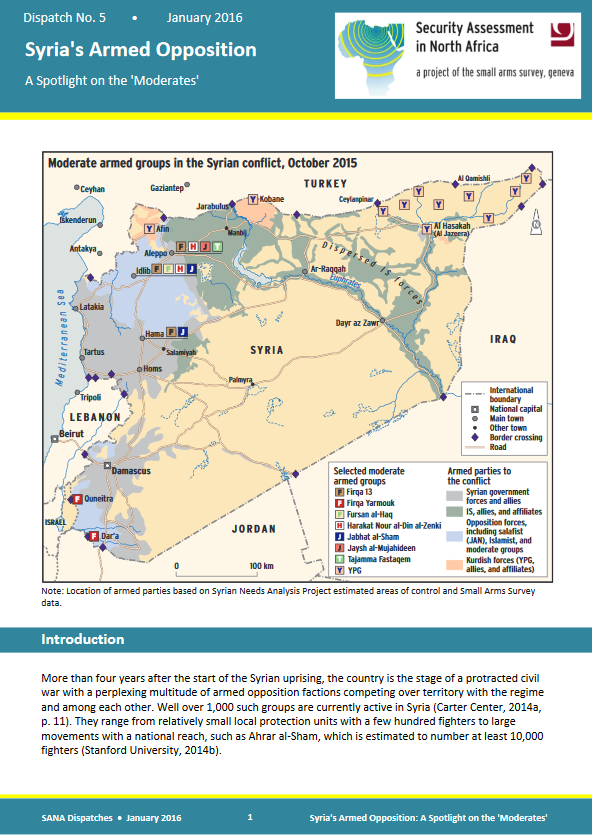
Syria's Armed Opposition: A Spotlight on the 'Moderates' (SANA Dispatch 5)
More than four years after the start of the Syrian uprising, over a thousand armed groups are involved in fighting that has consumed the country. The groups range in size from small local units of a few hundred fighters to large movements with an international reach, and range along the political spectrum from secular groups to extremist groups with a transnational outlook.
It is the bigger extremist groups that garner the headlines in the press and appear to be better organized and funded than the others. In response to the declaration of a caliphate by Islamic State (IS) in June 2014, an international coalition was formed to carry out air strikes on IS. At the same time, several countries committed to reinforcing support to Syria’s so-called ‘moderate’ opposition, including the provision of small arms and light weapons, military training, and logistical assistance.
Syria’s Armed Opposition: A Spotlight on the ‘Moderates’ (also available in ARABIC) a new Dispatch from the Small Arms Survey’s Security Assessment in North Africa (SANA) project, investigates the moderate opposition: what types of organizations have they developed? How do they acquire resources, including fighters and materiel? How do they govern the territories they hold? And among so many opposition groups, how do they coordinate with their allies and define their enemies?
- What started as an unpoliticized civil uprising developed into a highly fragmented armed opposition to the Syrian regime in which armed factions have come to gravitate around three core strains of political positioning:
- secularism (marked by the desire to separate religion from the state);
- Islamism (which entails the ambition to establish an Islamic state in Syria, though not necessarily through violence); and
- Salafi jihadism (which is marked by imperialist Islamist ambitions and takfirism, as practised by Al-Qaeda)
- Armed groups fighting under the flag of the Free Syrian Army have generally been unable to secure the resources necessary to develop sufficient organizational capacity to attract and retain fighters and effectively govern the areas under their control. Partially as a result of these shortcomings, they have lost considerable ground to better-funded extremist groups.
- In the Kurdish areas, the Democratic Union Party (PYD) and its armed wing, the People’s Defence Units (YPG), have been able to develop a sustainable political–military organization and an effective system of governance, but they will need a significant increase in military assistance to defend themselves from the ongoing IS offensive. The Turkish offensive against Kurdish groups in Turkey and Iraq forms another threat to the PYD/YPG.